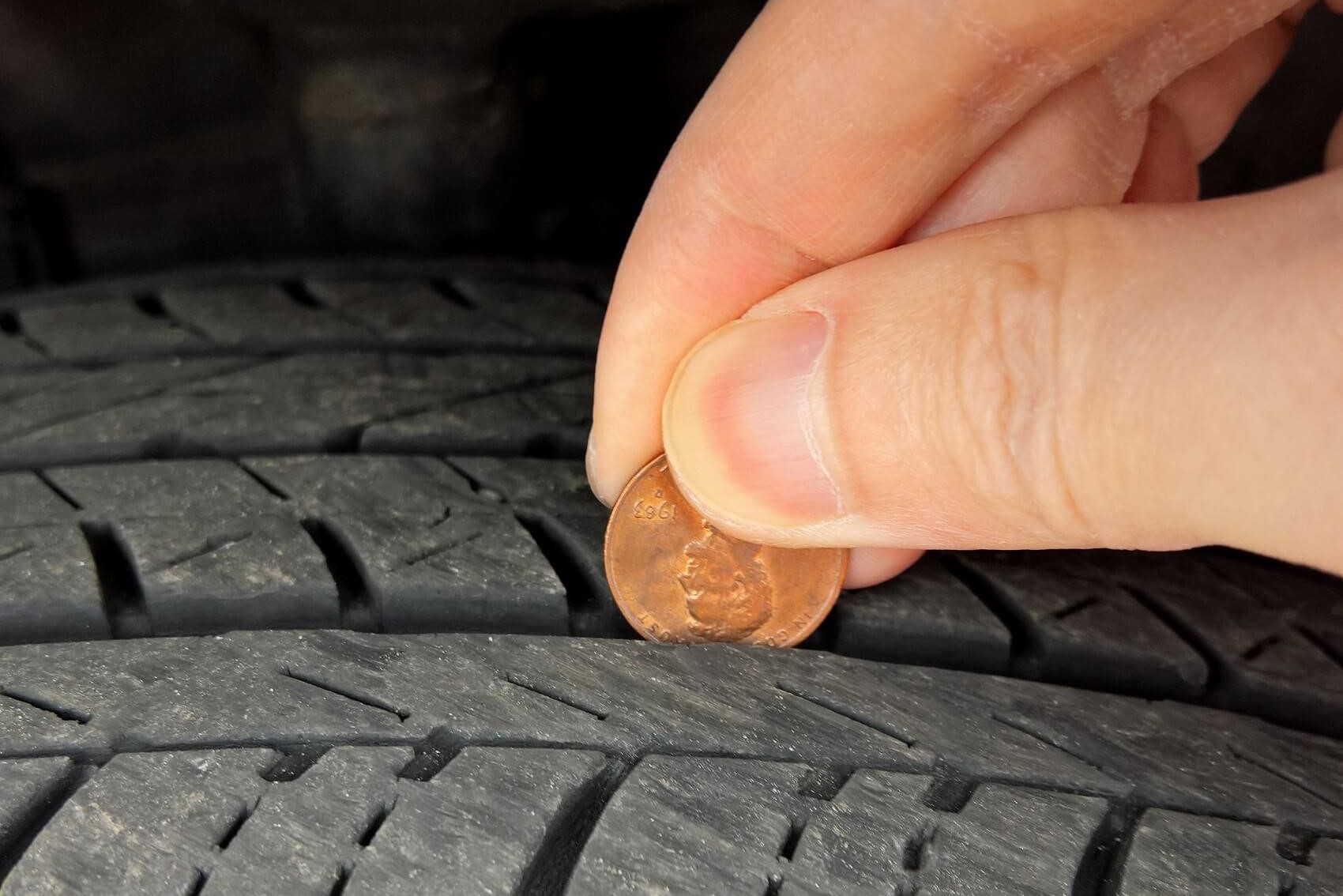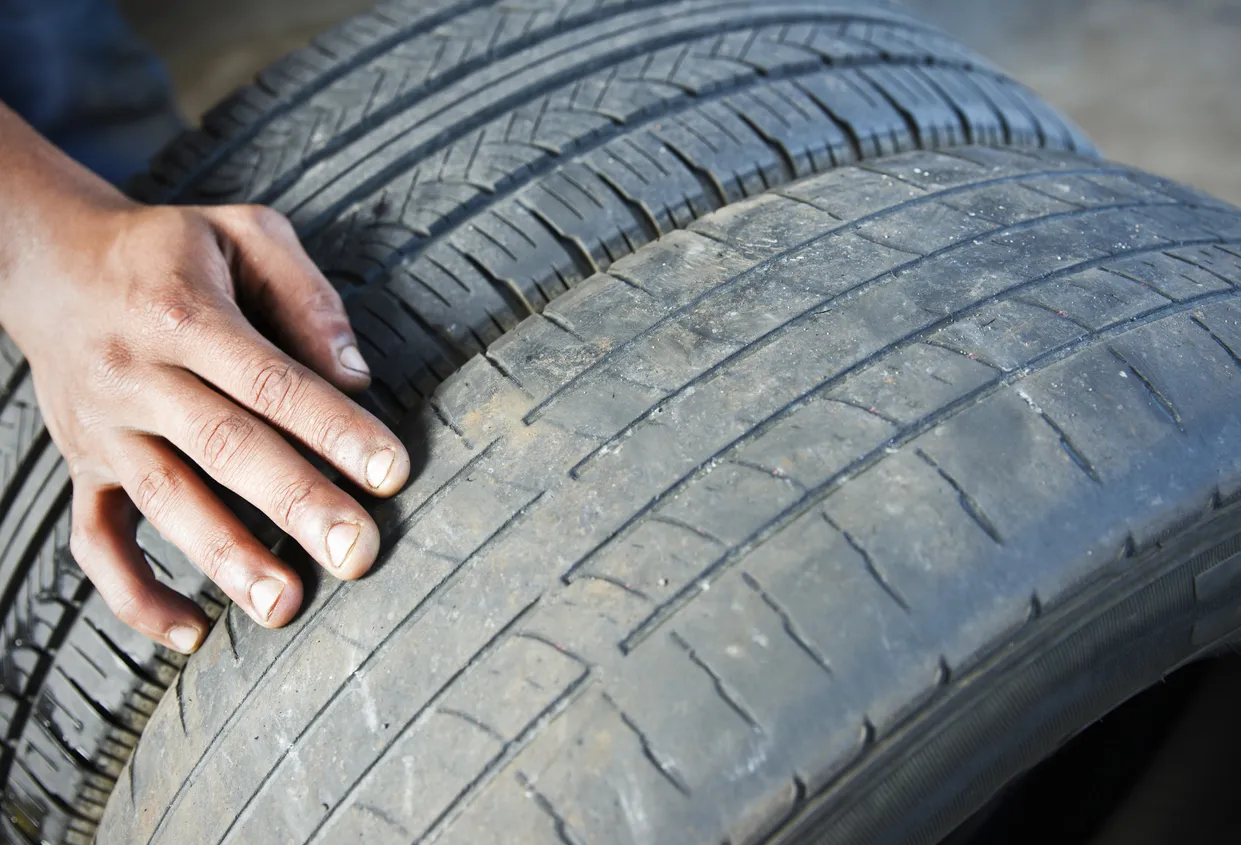Tires usually last between 25,000 to 50,000 miles. This range depends on several factors, including driving habits and road conditions.
Tires are a crucial part of your vehicle. They affect safety, fuel efficiency, and overall performance. Yet, many drivers are unsure about how long their tires will last. The lifespan of tires can vary widely. Factors like driving style, road conditions, and tire maintenance all play a role.
Understanding these factors can help you get the most out of your tires. This blog will explore how long tires typically last and what you can do to extend their life. By knowing what affects tire wear, you can ensure a safer and more economical driving experience.

Credit: www.tampahonda.com
Average Lifespan Of Car Tires
Car tires usually last about three to six years, depending on usage and maintenance. Regular checkups help extend their life. Frequent driving on rough roads may reduce tire lifespan.
Typical Mileage
Car tires usually last between 25,000 to 50,000 miles. This range can vary. Some tires may last longer. Others might wear out sooner. Proper care can extend tire life. Regular checks are important.
Factors Influencing Lifespan
Many factors affect tire lifespan. Driving habits play a big role. Fast driving wears out tires quickly. Smooth driving helps them last longer.
Road conditions matter too. Rough roads damage tires fast. Smooth roads are better for tires.
Another factor is tire maintenance. Rotating tires regularly helps. Keeping them properly inflated is crucial. Checking alignment is also key.
Signs Of Tire Wear
Tires typically last between 25,000 to 50,000 miles. Signs of tire wear include uneven tread, cracks, or bulges. Regular checks help ensure safety and longevity.
Tread Depth
Check the tread depth of your tires. It shows how worn they are. Use a penny test to measure it. Place a penny in the tread. If you see all of Lincoln’s head, it’s time for new tires. Worn tread can cause slipping on wet roads. Good tread keeps you safe.
Cracks And Bulges
Look for cracks or bulges on the tire surface. Cracks mean the rubber is old. Bulges show weak spots in the tire. Both can cause tire failure. Check the sidewalls too. If you see any of these, replace your tires soon.
Maintaining Tire Health
Check your tires every month. Look for cuts, cracks, or bulges. Check the tread depth. Worn tires are dangerous. Use a coin to check tread depth. If the coin shows too much, it’s time to change the tires. Regular inspections can save lives.
Keep tires properly inflated. Under-inflated tires wear out faster. Over-inflated tires can burst. Check tire pressure monthly. Use a good tire gauge. Follow the car manual for correct pressure. Proper inflation helps tires last longer.

Credit: goodcar.com
Driving Habits Impact
Speeding wears out tires faster. Fast braking also harms tires. Tires heat up quickly. Heat is bad for them. Frequent stopping makes it worse. Try to drive smoothly. Your tires will last longer. Avoid sudden stops when you can. This helps a lot.
Sharp cornering wears tires out. Gentle turns are better. Fast acceleration is tough on tires. Drive gently to save them. Tires last longer when you drive smoothly. Avoid sudden turns if possible. Smooth driving helps tires last.
Weather And Environmental Effects
Hot weather can cause tires to wear out faster. Heat makes the rubber softer and more prone to damage. Cold weather can make tires stiff and brittle. This may lead to cracks and breaks. Proper tire care is key in extreme temperatures.
Bad roads can damage tires quickly. Potholes and rough surfaces cause wear and tear. Smooth roads help tires last longer. Avoid roads with sharp objects. Regularly check tire condition to ensure safety and longevity.
Importance Of Tire Rotation
Rotating tires helps them wear evenly. It makes them last longer. This keeps your car safe on the road. Uneven tire wear can cause problems. It may lead to accidents. Tire rotation is a simple process. It can save money on new tires.
There are different tire rotation patterns. Front tires can be swapped with rear tires. Cross patterns can also be used. This means swapping front left with rear right. And front right with rear left. Your car manual will have the best pattern.
Tires should be rotated every 6,000 to 8,000 miles. This is about every oil change. Check your car manual for exact frequency. Regular rotation keeps tires in good shape. It also helps maintain car balance. This improves driving safety.
When To Replace Tires
Tires must meet certain legal standards. Tread depth is an important factor. The minimum legal tread depth is 1.6mm in many places. Check local laws to know the rules. Tires with tread below this depth must be replaced. Low tread depth can lead to fines. It can also cause accidents. Regular checks are important. Ensure your tires are legal.
Safety is key. Tires affect how a car handles. Worn tires can cause skidding. They may not grip the road well. This is dangerous in wet conditions. Blowouts can happen with old tires. Tire age matters too. Most tires last 6 years. After this, they can become unsafe. Check for cracks or bulges. Replace tires if they look damaged.

Credit: vatire.com
Choosing The Right Tires
Picking the right tires is very important. All-season tires work in both summer and winter. Winter tires are best for snowy roads. Summer tires handle hot roads well. Performance tires give you great grip and speed.
Good quality tires last longer. Brands like Michelin, Goodyear, and Bridgestone make durable tires. Cheap tires wear out fast. Always check reviews before buying. High-quality tires save money in the long run.
Frequently Asked Questions
How Long Do Car Tires Last On Average?
Car tires typically last between 25,000 to 50,000 miles. Proper maintenance can extend their lifespan. Regularly check tire pressure and alignment.
How Often Should Car Tires Be Replaced?
Car tires should typically be replaced every 6 years or 40,000-70,000 miles, depending on usage and wear. Regular checks help.
How Long Should The Average Car Tyre Last?
The average car tyre lasts about 25,000 to 50,000 miles. Lifespan varies based on driving habits and conditions. Regular maintenance extends tyre life.
What Is The Standard Life Of A Tire?
The standard life of a tire is about 6 years or 50,000 miles, depending on usage and maintenance.
Conclusion
Tire lifespan varies based on driving habits and maintenance. Regular checks can extend their life. Rotate tires every 5,000 to 8,000 miles. Replace tires when tread depth is low. Keep an eye on tire pressure for safety. Proper alignment helps too.
Always inspect tires for damage. Consult your mechanic for specific advice. Safe tires mean safe driving. Maintain them well for longer use.
